The following text was sent out via email on October 2, 2023. Sign up for PEC email alerts →
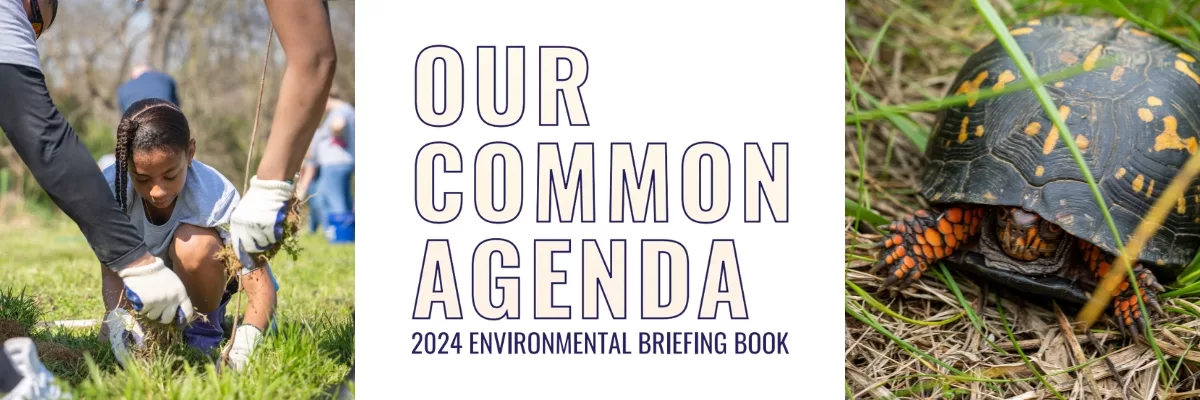
Dear Supporter,
Earlier this month, the General Assembly convened for a special session in Richmond to wrap up negotiations on the 2022-2024 biennial budget. With that in mind, I want to share some updates on the conversations taking place in Richmond and detail a few of the ways The Piedmont Environmental Council is working to support conservation efforts statewide.
Notes on the 2022-2024 budget
The state budget is a powerful tool for achieving land conservation, farmland preservation, battlefield, and heritage protection, expanded state parks and trails, climate resilience, and more. It provides critical funds for programs such as the Virginia Land Preservation Tax Credit and to state agencies that provide technical assistance for conservation.
The finalized 2023-2024 budget maintained funding, but fell short of our asks on the Virginia Land Conservation Fund ($32M as opposed to $52M), Virginia Farmland Preservation Fund ($1.75M as opposed to $8M), and BIPOC Historic Preservation Fund ($5M as opposed to $10M) over the biennium.
The good news: The Virginia Battlefield Preservation Fund ($11.5M) exceeded our ask and allocated $5.5 million to Culpeper Battlefields State Park. In a win for the Chesapeake Bay, the budget also includes $286 million in matching grants for farmers who adopt best management practices for clean water through the Virginia Agricultural Cost-Share and related programs.
The not-so-good news: The budget allocates $140 million in taxpayer dollars to further subsidize the data center industry through the Cloud Computing Cluster Infrastructure Grant Fund. We pushed back against this budget item and its enacting legislation, which was a bargaining chip used by the governor to secure a commitment by Amazon Web Services to invest $35 billion in data center campuses across Virginia by 2040.
Election season approaches
On Nov. 7, all 40 seats of the Virginia Senate and 100 seats in the Virginia House of Delegates will be up for election, as are many local offices. PEC strongly encourages you to learn about the candidates on your ballot and make a plan to vote.
With the expected turnover in the legislature due to retirements and redistricting, this election will determine critical outcomes for our land, air, water, and climate in the upcoming 2024 legislative session and beyond. Contact your local and state candidates early and often to let them know what issues are important to you.
Conservation priorities for the 2024 General Assembly Session
In January, the Virginia General Assembly will begin its regular session, this year held for 60 days. Because the General Assembly moves very fast, we’ll be providing regular updates through email alerts and social media to let you know what bills need your attention.
For now, I’d like to highlight some top-level priorities from the Virginia Conservation Network’s newly released Our Common Agenda: 2024 Policy Briefing Book, which represents the policy agenda of more than 160 organizations across the state. The Piedmont Environmental Council and the Coalition for Smarter Growth are proud to have co-authored eight of the 45 briefing papers. We hope you’ll give them a read and invite you to tune in to VCN’s 2024 Our Common Agenda Education Series each Thursday next month.
Investing in Virginia’s Heritage and Future
By Mike Kane – PEC, Elizabeth Mizell – Blue Ridge PRISM, Alan Rowsome – Northern Virginia Conservation Trust
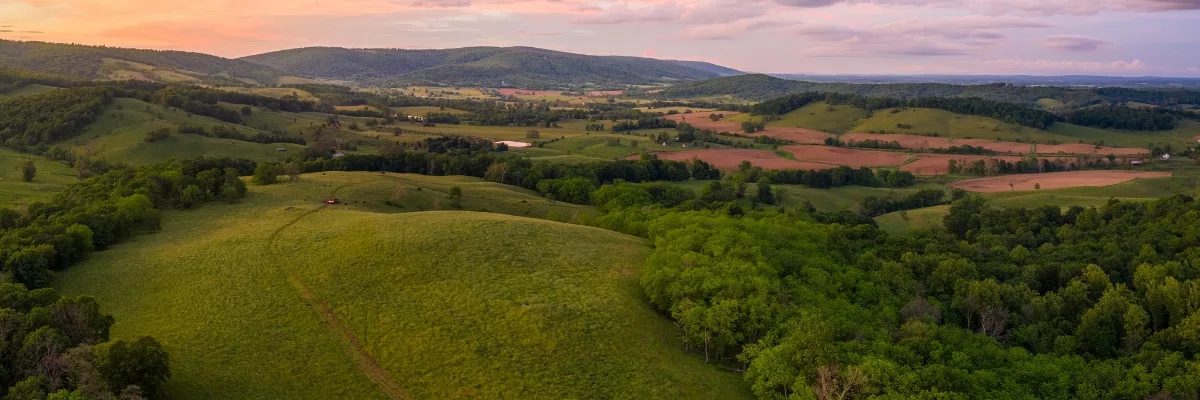
Private and public land conservation is essential to our quality of life here in Virginia. Without conservation, we lose the farms that grow our food, the forests that filter our drinking water, the ecosystems that provide habitat and protection from climate change, and the healthy outdoor spaces Virginia families rely on to recreate.
With more than 80% of land in Virginia privately owned, tools and funding are needed to encourage landowners to conserve their land for the benefit of all Virginians. Fortunately, the Commonwealth has effective land conservation programs already in place, such as the Virginia Farmland Preservation Fund, Black, Indigenous, and People of Color (BIPOC) Historic Preservation Fund, and the Land Preservation Tax Credit (LPTC), but these programs must be consistently funded at a high level to meet the growing demands of our time.
Mitigating Data Center Development’s Impacts
By Julie Bolthouse – PEC, Kyle Hart – National Parks Conservation Association
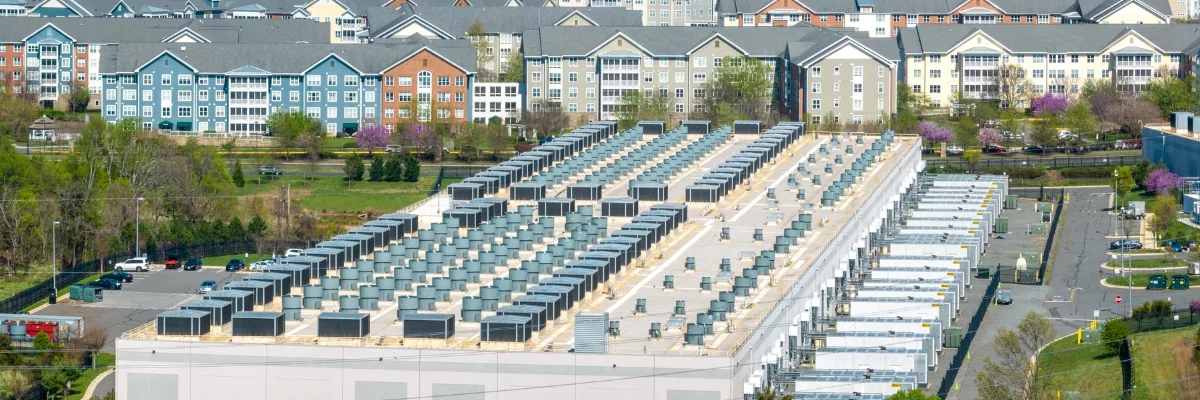
Virginia is home to the largest concentration of data centers in the world – a massive industry growing at a rapid pace. As localities continue to approve projects in communities, the trend threatens to derail state efforts to meet climate goals, improve air and water quality, advance land conservation, provide affordable and clean energy to all Virginians, and protect national and state parks.
The General Assembly has not yet been willing to look at the cumulative impacts of this unchecked data center development, even as the costs to everyday Virginians become more evident. A comprehensive study is needed to ensure adequate regulatory oversight of this industry before it’s too late.
Connecting Wildlife Habitats
By Laura O’Brien – PEC, Erin Sito – Wildlands Network, David Sligh – Wild Virginia
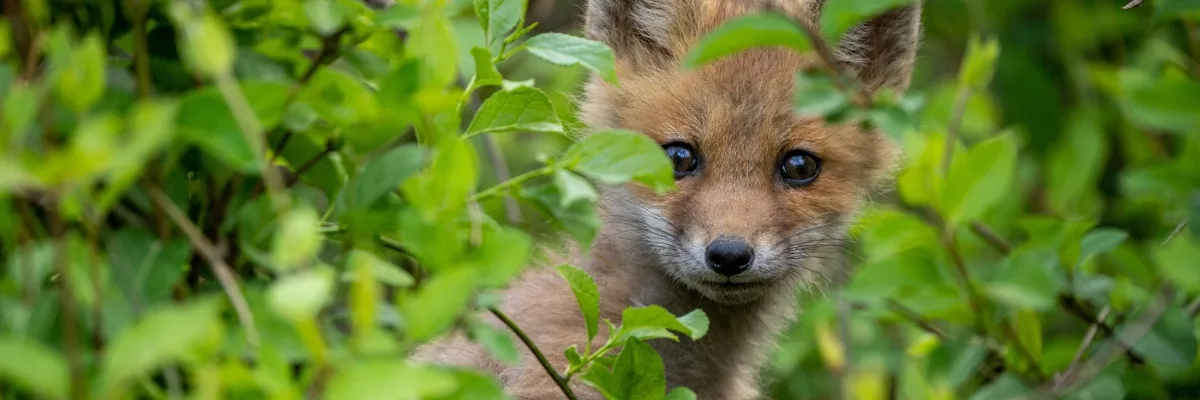
Wildlife is important for the health of our ecosystems and brings technicolor to our experiences in the outdoors. Across Virginia, roads and other infrastructure impede aquatic and terrestrial wildlife movement, fragment habitat, and create dangerous scenarios on our roadways for both wildlife and people. With funding and additional policy tools to empower state agencies, we can build a network of robust habitat corridors and prevent harm caused by human-wildlife collisions.
Expanding Access to Community Solar
By Ashish Kapoor – PEC, Josephus Allmond – Southern Environmental Law Center, Peter Anderson – Appalachian Voices

Many Virginians want to power their homes and businesses with clean, renewable solar power. However, not everyone can put solar on their own rooftop due to ownership, capital, or other technical restraints. Community solar is an alternative that allows Virginians to power their homes and businesses with smaller solar projects, often constructed on shared built space. However, financial barriers are a major obstacle to wide adoption. A more amenable state policy environment can encourage community solar and help Virginia hit its clean energy goals outlined in the Clean Economy Act.
Powering Progress Through Rooftop Solar
By Ashish Kapoor – PEC, Josephus Allmond – Southern Environmental Law Center, McKenna Dunbar – Sierra Club Virginia Chapter
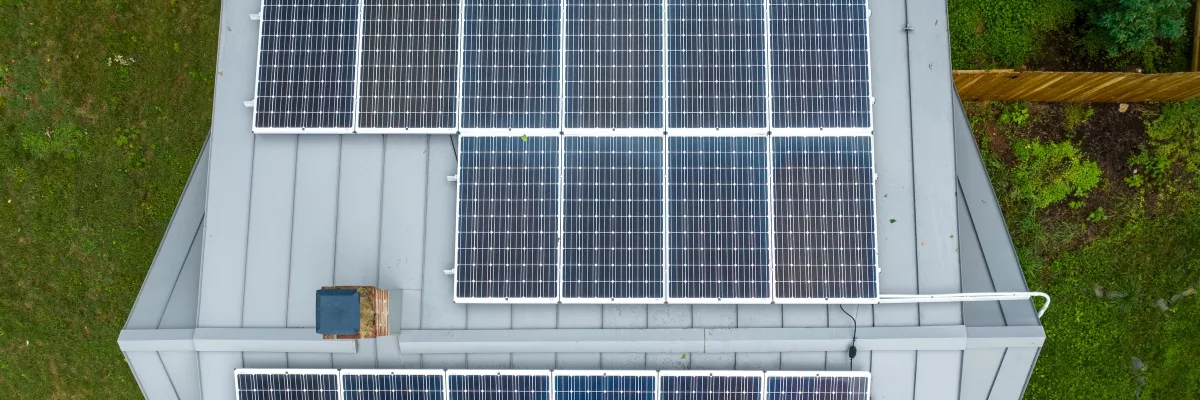
Distributed rooftop solar is an important part of Virginia’s Clean Economy Act future. It is built on pre-existing infrastructure, decreasing the amount of land needed for larger projects, and creates a more resilient, decentralized grid that does not require costly upgrades. With the right policy landscape, rooftop solar can be deployed more widely, and getting more solar on homes, businesses, and schools can save Virginians money, create energy independence, and get more clean energy on the grid.
Deploying Utility-Scale Solar Responsibly
By Ashish Kapoor – PEC, Josephus Allmond – Southern Environmental Law Center, Patrick Fanning – Chesapeake Bay Foundation
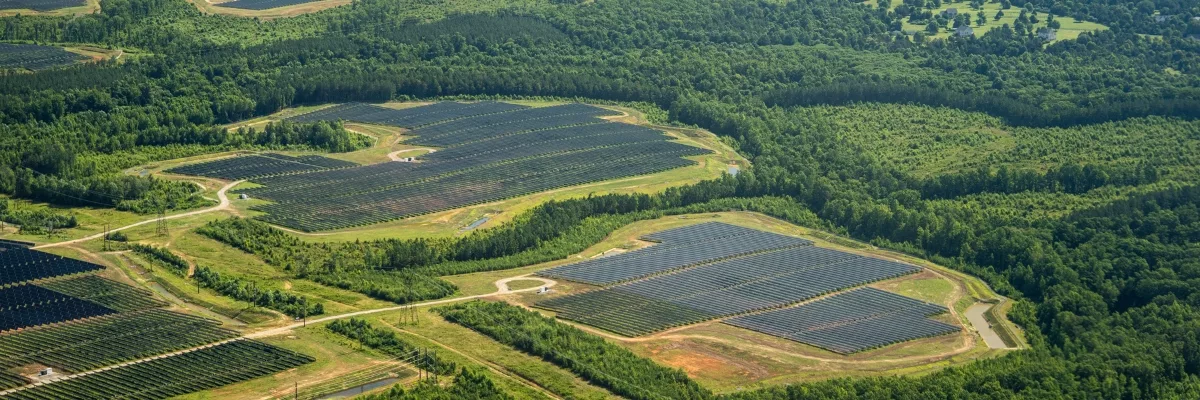
The Virginia Clean Economy Act’s 100% renewable goals and the rapidly increasing energy demand from data centers are driving a sharp increase in large utility-scale solar developments. Because building more renewable energy is a critical priority, we must encourage projects that uphold best practices, minimize impacts on prime agricultural land and forests, and prioritize win-win siting options such as brownfields.
Working With Farmers to Protect Our Waterways
By Maggi Blomstrom – PEC, Tom Dunlap – James River Association, Kendall Tyree – Virginia Association of Soil & Water Conservation Districts, Joe Wood – Chesapeake Bay Foundation
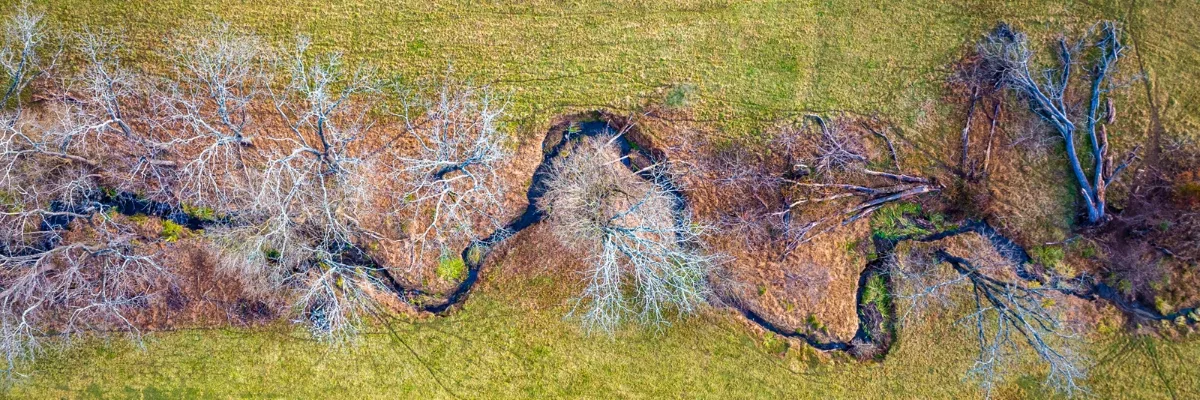
Virginia has made substantial progress in developing and implementing the Virginia Agricultural Cost Share (VACS) Program, which helps farmers implement conservation projects that reduce pollution in local waterways.
However, Virginia is still not on track to achieve nutrient and sediment reduction goals critical for the health of the Chesapeake Bay. Many of our rivers continue to report declines in water quality, making them unsafe for us to drink or recreate in. Sustained financial and technical support through a fully-funded VACS program can get us closer to our clean water goals.
Saving Pedestrian Lives
By Sonya Breehey – Coalition for Smarter Growth, Mike Doyle – Northern Virginia Families for Safe Streets, Amy Guzulaitis – Partnership for Smarter Growth, Brantley Tyndall – Bike Walk RVA
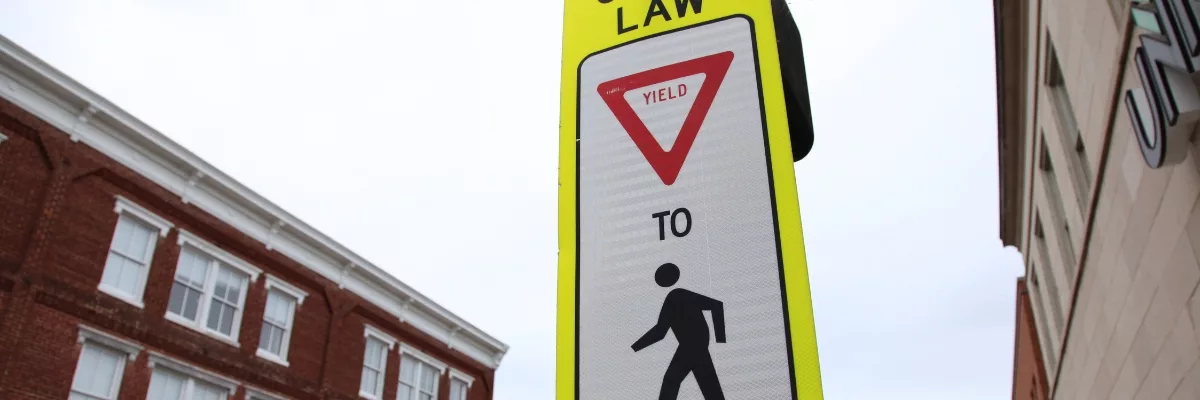
Every year, more than 1,000 Virginians die from road fatalities. These are preventable deaths. Virginia must invest in the policies and resources to reverse this tragic trend, such as reducing car speeds, increasingly educating all road users, and redesigning our roadway network for better pedestrian protection.
As I see it, Virginia is at a crossroads, and conservation needs your support now more than ever. The pressures on our region and environment are real and growing, and so are the opportunities ahead. PEC is sounding the alarm at local, state, and national levels, raising awareness among the public, and organizing diverse coalitions that we hope together will bring positive transformation to the policy landscape.
We hope we can count on you to help us make a difference — every vote, letter to elected officials, and donation to our mission counts more than you know.
Sincerely,
Chris Miller
President
cmiller@pecva.org
(540) 347-2334 x7100
